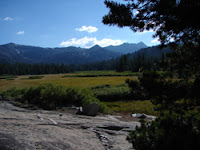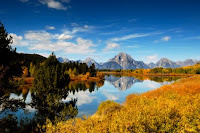I have run into my share of resistance to change in my career as a consultant. In fact, I don’t know a successful consultant who has not been forced to address this issue at some point. Non-profit consultant and expert grant writer, Derek Link, shares his thoughts today on the “Can’t Be Dones,” those who consistently resist change:
Have you worked with someone who counters every idea for change with, “It Can’t Be Done”? I’ve found sometimes that people mistake their experience for wisdom when all they’re really doing is applying all previous failures to thwart new ideas.
You see “Can’t Be Dones” have become timid about trying new things for some reason. New ideas scare them because they’ve been around long enough to witness failure, perhaps lead others into it, or be led into it themselves. Sometimes, they’re just tired out and should probably retire, or get an attitude transplant.
“Can’t Be Dones” like it when things are in homeostasis, they’re comfortable there. It may not be that they’re happy with the way things are, but it’s a level of discomfort that they’re comfortable with and accustomed to, so it’s not worth changing something and possibly making it worse.
I’ve witnessed the “Can’t Be Dones” at work and their vocabulary around changes is always the same:
- “So-and-so tried that ten years ago and it didn’t work.” (not willing to examine why it didn’t work, or how this is different, or they may have no clue about either and don’t care).
- “That won’t work here” and it’s usually because someone else won’t go for the idea, align with the change, adapt to the situation. (Not that the Can’t be Done is opposed, just other people).
- “Shouldn’t be done” That’s a bad idea because it conflicts with tradition, customs, norms, morals, values, color of the building, rules, regulations, laws, Celtic lunar rituals (whatever, there will be a reason, and it doesn’t have to be a good one).
- “You need to build consensus first.” This is a smokescreen for, “I will never join the majority; so, you feelin’ lucky punk?”
A lot of energy can be wasted on trying to get “Can’t Be Dones” to move in the direction of change. I suggest that you get everyone to move past them and they usually do one of two things, 1) They eventually grumble along behind the pack like a cranky kid who’s tired and didn’t want to go on the hike to start with, or 2) they will resist the changes by stopping on the trail, digging in their heels to test your commitment to moving forward.
It’s important to understand the thought processes of a “Can’t Be Done” and to try to engage them early and often in the process of brainstorming changes. Once in a great while through relationship-building in this manner, they can be brought over from the dark side of resistance. When the CBD’s refuse to join the hike, just be ready to drag them along the dusty trail of change kicking and whining.
————————
Free e-book: 12 Secrets of Successful Grant Writers
Want to learn grant writing? Try Grant Goddess University online.







